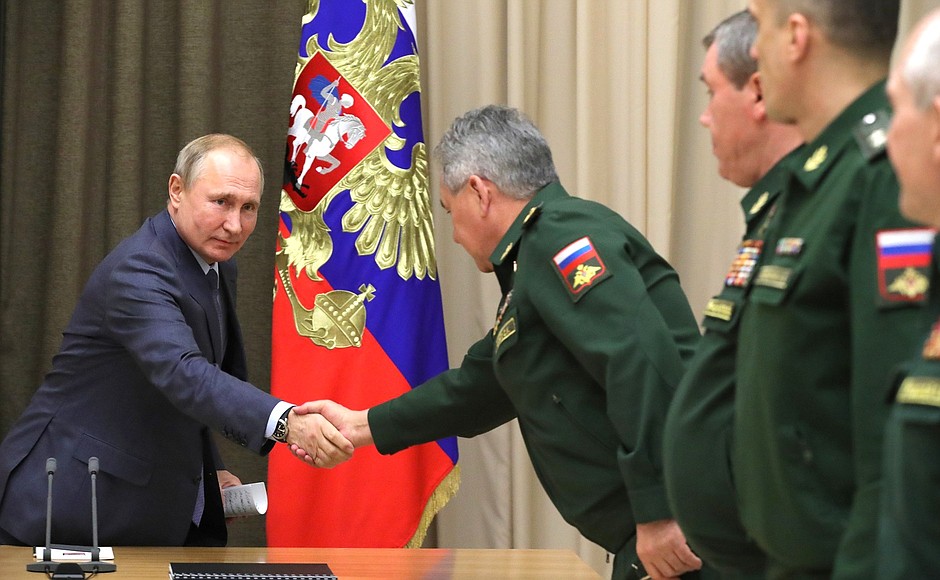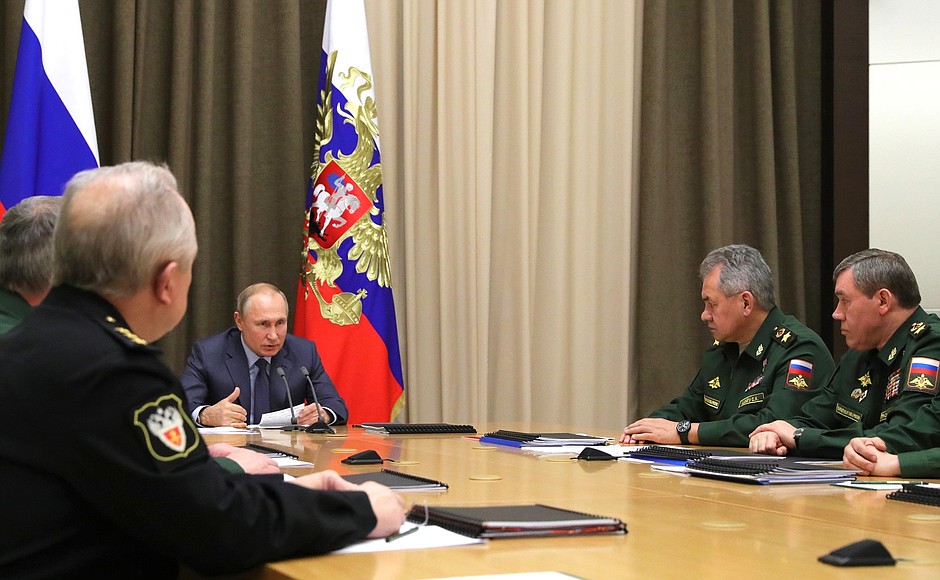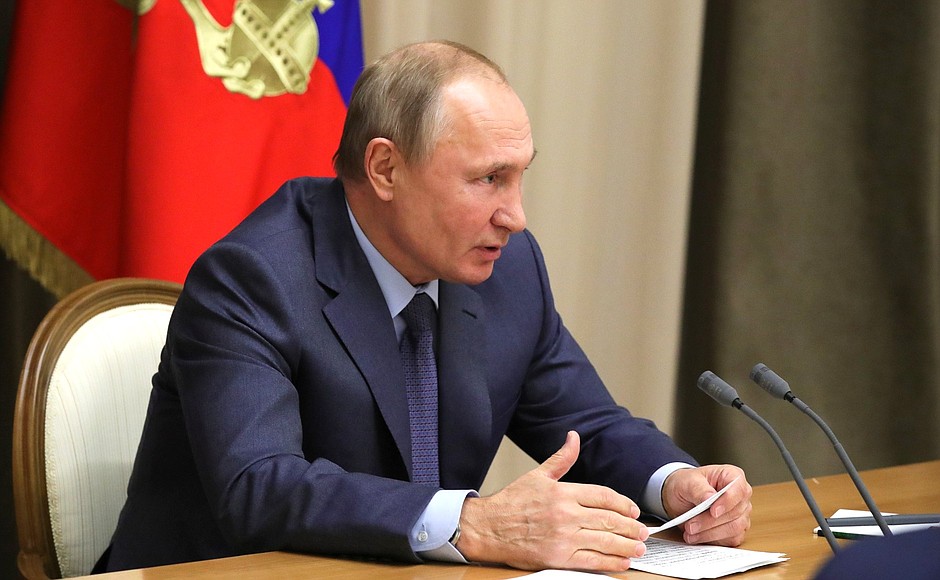President of Russia Vladimir Putin: Good afternoon, colleagues,
Today is our final meeting in this December series of meetings with the leadership of the Defence Ministry and other departments, as well as defence industry enterprises. We have considered the key targets for the development of the Russian Navy. We discussed with the heads of the defence industry enterprises their progress on the state defence order, primarily as concerns building, modernising, repairing and servicing the weaponry and equipment for the Navy.
We specifically focused on the implementation of instructions given during the May meetings, including the one to expand the orbital group of military and dual-purpose spacecraft and increase their capabilities.
Our current agenda includes the development and implementation of advanced technologies, including AI-based solutions. As I have already noted, these days they are widely used to create modern types of weapons and equipment, robotic systems, weapons based on innovative physical principles that will largely determine the future of our Army and Navy.
We need to comprehensively analyse and evaluate the test results of promising weapons systems. Successful research and development in the aforementioned high-tech areas are of crucial importance for the development of civilian sector, for increasing the competitiveness of the national science, and creating advanced industries and infrastructure for the digital economy.
Today, we will also discuss measures to counter potential threats stemming from the United States’ withdrawal from the INF Treaty.
To reiterate, Russia is not interested in launching an arms race or deploying missiles in environments where no missiles are currently deployed. As you may be aware, we announced a unilateral moratorium on deploying such missiles and invited our colleagues in Europe and the United States to join in. So far, only the President of the French Republic, Mr Macron, has responded. There is no response from our other partners. This forces us to take measures to counter these threats.
By the way, we are all well aware of the fact that the United States unilaterally withdrew from another major treaty on limiting missile defence systems from 2002. They acted in a straightforward manner back then and took responsibility for this step and did not even try to shift the blame to Russia. This was fairly difficult to do back then, it seemed.
Now, they have also withdrawn from that unilaterally, but as we can see, attempts are being made to shift the responsibility onto us. This position has no grounds whatsoever, but nevertheless, the attempt is being made.
The New START treaty, which expires soon, is another item on the disarmament agenda. All of our proposals to renew this treaty are on the table. So far, we have not received any response from our partners. In this regard, I would like to reiterate our position: Russia is willing to immediately, as soon as possible, before the year is out, renew this treaty without any preconditions. I am stating this officially so that there are no double or triple interpretations of our position later on.
We will discuss today ways to oppose any unfriendly step, and the best and the least expensive operational decisions.
Let's get to work.
<…>


